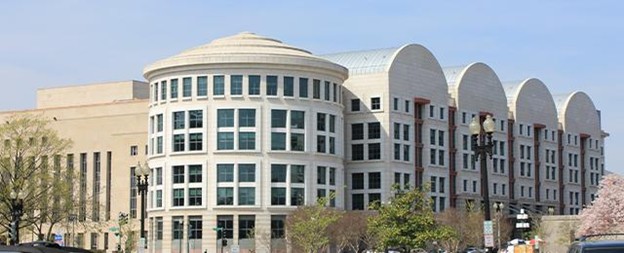Recently, we addressed the injunction issued by the Chief Judge of the District Court of the District of Columbia, James Boasberg, which halted the Trump Administration efforts to deport members of the violent Venezuelan gang, Tren de Aragua (TdA). President Trump had issued a Proclamation declaring members of TdA to be Alien Enemies, and agents of the Venezuelan government, who had encouraged members of the gang to infiltrate the United States in an effort to destabilize our country with their criminal activity. In doing so, the President invoked the Alien Enemies Act (AEA), which states that “[w]henever there Is a declared war between the United States and any foreign nation or government, or any invasion or predatory Incursion is perpetrated, attempted or threatened against the territory of the United States by any foreign nation or government, and the President makes public proclamation of the event, all natives, citizens, denizens, or subjects of the hostile nation or government, being of the age of fourteen years and upward, who shall be within the United States and not actually naturalized, shall be liable to be apprehended, restrained, secured, and removed as alien enemies.”
Five “noncitizen Venezuelans” brought a case in the DC District Court and asked that their deportations be stopped. In a series of rulings, Judge Boasberg ordered the Trump Administration to “not remove any of the individual Plaintiffs from the United States for 14 days absent further Order of the Court,” then expanded his order to prevent the removal of “All noncitizens in U.S. custody who are subject to the March 15, 2025 Presidential Proclamation.”
The Attorney General’s Office appealed, claiming the Court did not have jurisdiction to determine whether or not the President could invoke the Alien Enemies Act, and to issue an injunction was an interference in President’s exercise of his Constitutional powers. On March 26, 2025, in a 2-1 decision, a three judge panel of the DC Court of Appeals sided with Judge Boasberg and kept the injunction in place.
What is of primary interest here, though, is the reasoning behind the appellate court’s decision. Judge Boasberg did not give any explanation of his rulings – he merely submitted orders to the government without providing any basis for those decisions. Thus, the opinions provided by each of the three judges at the appeals court is the first chance we have to understand why the lower court would block an action by the Trump Administration that is favored by a majority of the American public.
According to Circuit Judge Karen LeCraft Henderson, “[t]he government asserts that the ‘sole question’ amenable to judicial scrutiny is whether a detained individual is ‘an alien enemy’…whether the person is a fourteen year or older ‘native[], citizen[], denizen[], or subject[]’ of a presidentially declared hostile nation…Any other AEA prerequisites are purportedly ‘political question[s]’ ‘outside the competence of the courts.’” However, “[q]uestions of interpretation and constitutionality – the heartland of the judicial ken – are subject to judicial review.” Thus, “conditional questions – the legal meaning of war, invasion and predatory incursion – are well within [the] courts’ bailiwick.”
This preliminary analysis is true, so far as it goes. But the Court then goes on to discuss the reasons why the President could not use the Alien Enemies Act to remove TdA members from our shores. “[T]he AEA vests in the President near-blanket authority to detain and deport any noncitizen whose affiliation traces to [a] belligerent state,” the Court states. “A central limit to this power is…that the United States be at war or under invasion or predatory incursion.”
Judge Henderson then proceeds to take a very narrow view of what constitutes an invasion or predatory incursion (since there is no declared war between Venezuela and the United States, there is no need to examine the issue in this respect).
“[T]he invasion must be ‘against the territory of the United States by any foreign nation or government.’ 50 U.S.C. [Sec] 21 (emphasis added),” the Court writes. “The requirement that the ‘invasion’ be conducted by a nation-state and against the United States’ ‘territory’ supports that the Congress was using ‘invasion’ in a military sense of the term…Undesired people do not arrive against the territory. But foreign armies can…invade the territory of the United States.”
Further, in describing a “predatory incursion,” Judge Henderson believes that while “[a]n incursion is a lesser form of invasion,” a predatory incursion is “a form of hostilities against the United States by another nation-state, a form of attack short of war. Migration alone did not suffice.”
Judge Wilson’s (ret.) article concludes tomorrow
Illustration: Pixabay
